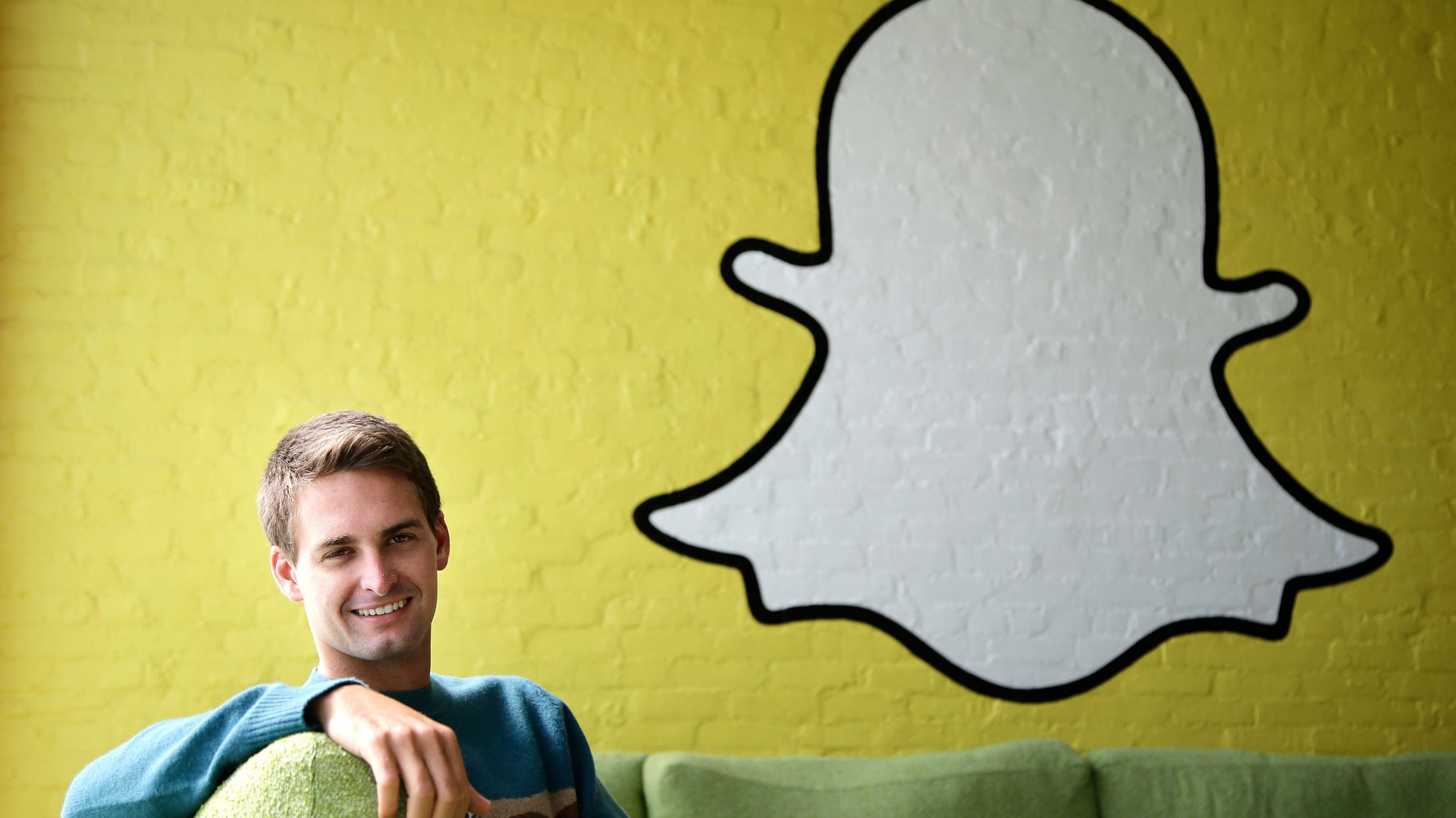Snapchat is willing to experiment with just about anything to make money
Snapchat has the eyes, ears, and fingertips of young people in the US, but the five-year-old media company is still figuring out how to make money off that audience. And it’s trying just about everything.


Snapchat has the eyes, ears, and fingertips of young people in the US, but the five-year-old media company is still figuring out how to make money off that audience. And it’s trying just about everything.
Today (Feb. 9), the Los Angeles-based startup announced a multi-year partnership (paywall) with MTV and Comedy Central parent company Viacom that would allow the media conglomerate to sell advertising on Snapchat’s behalf. Viacom will bundle the Snapchat ads with its own TV inventory and sell them independently, where appropriate, CEO Philippe Dauman said on a conference call this morning.
The move seems like a win-win for both companies.
It shows that Viacom is still the one of the strongest video platforms for reaching younger audiences, and that it’s stepping up its digital and mobile efforts, Brian Wieser, senior analyst at Pivotal Research Group, told Quartz.
It also scales up Snapchat’s sales reach beyond its own team, which the company has yet to disclose the size of. And Viacom’s wealth of experience working with marketers may help the young media company reach new advertisers that already are eager to work with it.
“A move like this means Snapchat understands where it is in its lifecycle,” Christopher Lehmann, managing director at WPP’s Landor, told Quartz. “[It] understands it hasn’t yet cracked how to manage its advertising and, by partnering with Viacom, moves to a position of strength.”
The Viacom deal is one of many efforts Snapchat is making to bring more advertisers into the fold. It recently added new ad units like sponsored lenses, is reportedly building an ad-technology platform, and is considering buying an ad-technology firm.
The moves Snapchat is making are reminiscent of Facebook circa 2007 to 2009, when the tech company was experimenting with a range of tactics—including the failed Beacon platform—to lure advertisers, VaynerMedia founder Gary Vaynerchuk told Quartz. It’s smart for young platforms to explore a variety of strategies to make money, he said. If tying Snapchat ads to Viacom’s TV inventories are a success, future break-out apps may try to strike similar deals as well, he speculated.
Ten years ago, a deal like this just wouldn’t have happened, Vaynerchuk also pointed out. “We live in unprecedented times,” he said. A media conglomerate like Viacom never would have rented its salesforce to a social-media platform that’s less than five years old.
And if it did, it wouldn’t have been as big a headline as Viacom is making it out to be. The media conglomerate, which just completed a controversial leadership shakeup, announced the deal ahead of its earnings today and called it “a major step forward in the evolution of the marketplace” during a call with investors.
Large, traditional media companies like Viacom have become more willing to help younger social startups because they don’t want to be left out. (In Viacom’s case, its current business—which is largely dependent on cable subscriber fees—is likely to decline as the pay TV model increasingly struggles.) Snapchat hasn’t flushed out its monetization strategy, but it has a coveted audience and it knows how to reach them. And its CEO Evan Spiegel, who aspires to keep the company independent, has a strong incentive to create a large business sooner than later.
Over the weekend, a sponsored Gatorade lens that launched on Super Bowl Sunday garnered more than 100 million views, the beverage brand announced on Twitter on Monday. That’s a Super Bowl-sized audience for a fraction of the price. (Thirty-second TV spots in this year’s game reportedly sold for $4.6 to $5 million, while Snapchat lenses range from $450,000 to $700,000.)
“Gatorade did a phenomenal job of using the right event that is outrageously authentic to its brand with an unbelievable execution,” said Vaynerchuk. “It opens up a lot of opportunities for brands to do smart integrations [on Snapchat]. I would argue it was so well done that the Instagrams and the Vines and the Facebooks of the world are probably having their own conversations around automated filters right now.”
Snapchat did not immediately respond to Quartz’s request for comment.